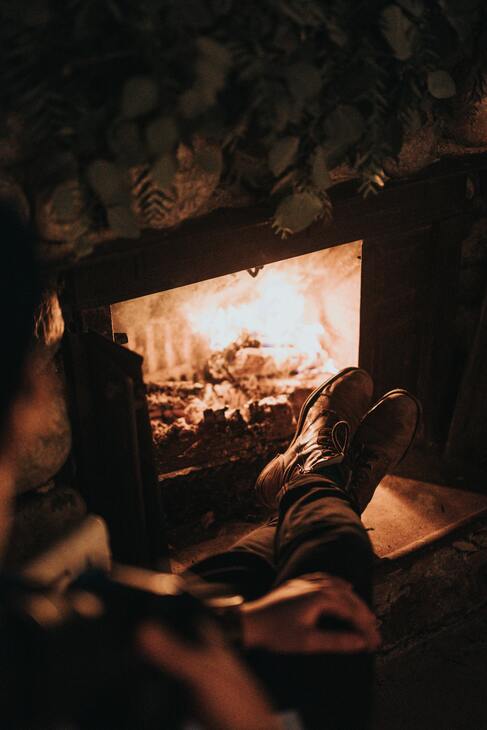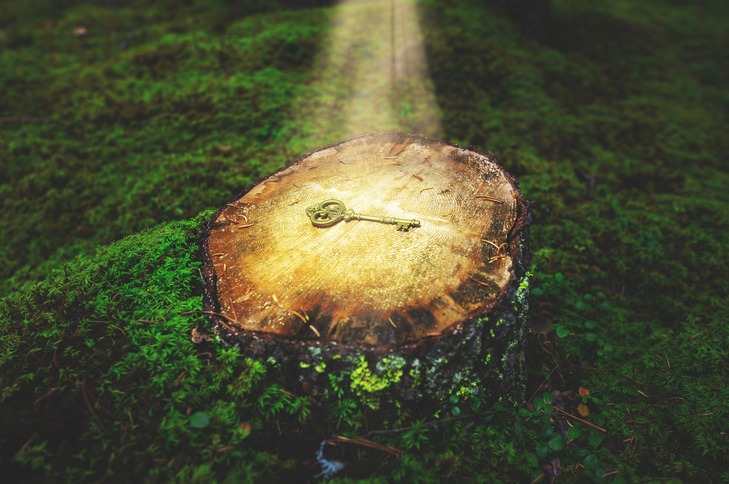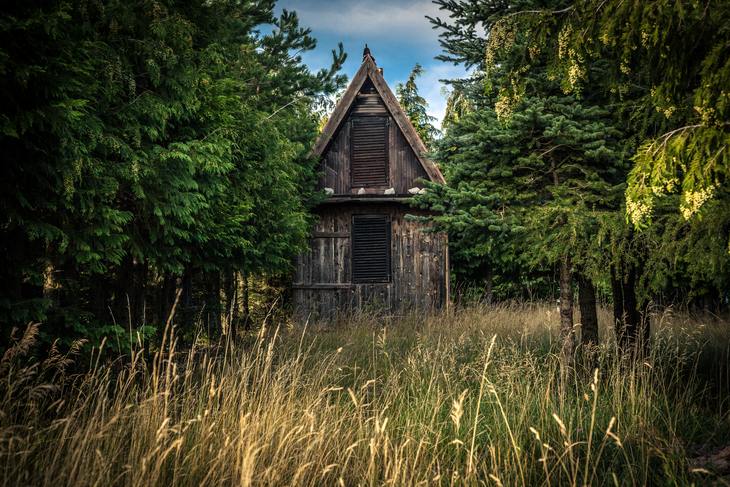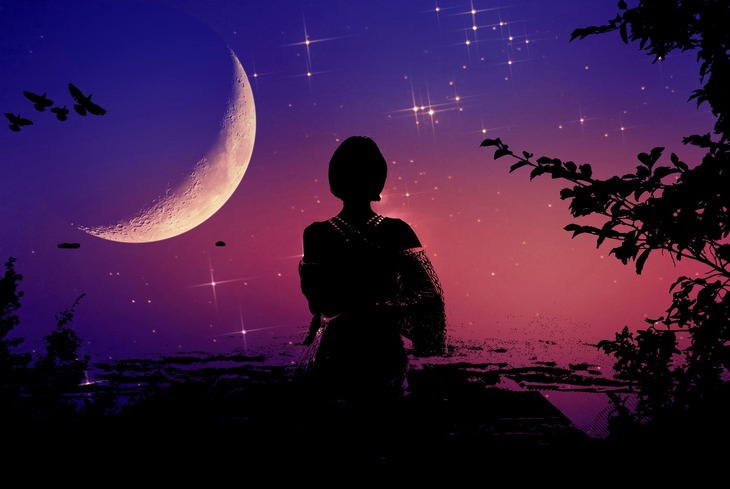With a little help from not his friends, Bilbo fell onto the floor of his very own Hobbit hole. The possibility of a quest that ends with a dragon, a dragon he has to face himself, is more than he can take. The panic of the mere thought of being killed by a dragon leaves him short of breath and falling to the floor. Bofur in his infinite wisdom has opted to describe to him exactly what kind of death awaits him, without holding anything back. Oddly enough, no one suggested for Bofur to stop. They all probably wanted to see what kind of reaction this information would trigger in Bilbo.
The child in Bilbo
Bilbo: “I’ll be alright. Just let me sit quietly for a moment.”
Gandalf: “You’ve been sitting quietly for far too long. Tell me when did doilies and your mother’s dishes become so important to you? I remember a young Hobbit who was always running off in search of Elves in the woods. Who would stay out late, come home after dark trailing mud and twigs and fireflies. A young Hobbit who would have liked nothing better than to find out what was beyond the borders of the Shire. The world is not in your books and maps. It’s out there.”
Bilbo sits on his chair in front of his fireplace, drinking tea, gathering strength after having passed out in front of everybody as Smaug was described. He separated himself intentionally from the group in order to gather his thoughts and let his fear of the beast subside.
Gandalf is opposed to letting Bilbo have a moment of peace. In his mind, Bilbo has already had enough time for peace and quiet. What he needs now is an adventure, something that would rearrange his priorities. Gandalf is almost furious with the Hobbit. He cannot believe the importance Bilbo puts on his own possessions, for that is not how he remembers him, not at all.
From what he knows of the Hobbit from his younger days, he would have jumped at the chance to join a company and head out into the unknown. His heart was open to possibilities and lands outside of the Shire. But, as the years passed, his life started to revolve around comfort and warmth. He was much more interested in learning about the world through books than practice.
Comfort vs adventure
We can all relate to this development. When we are young the thought of anyone holding us back from exploring our surroundings and beyond seems like the greatest punishment one could endure. There is nothing better for a young mind to feed its curiosity by introducing itself to the world. As we grow, we form our own surroundings, we make it as comfortable and as pleasant as we can.
As we establish structure in our lives, the link to our own curiosity becomes ever distant. And after the structure had been holding for a while, the curiosity fades almost completely. We seek to decorate and adjust the inside to all our needs. This comfort sees to it that we always feel safe.
However, with safety comes fear. This fear, as all fear, is irrational. Besides vacationing in some part of the world, uprooting oneself from one’s own home elicits fear and anguish. Even if a move somewhere else was something we had wished for in our younger years, as we get older the thought of it brings about concerns that block our progress.
The reasons for those concerns are manageable and easy to solve, but to our mind that had gotten used to the comfort and safety of our own four walls, it seems like an attack to all the good that we had constructed for ourselves. Why would you want to change something if there is no immediate need? Why fix something that isn’t broken?
We can look at Bilbo as an established Hobbit, one that is finicky, a bit judgmental, somewhat close-minded, and persnickety. In comparison to the Dwarves, he certainly stands out. But he is not a long way from all of us. We would all think twice before embarking on an adventure.
The family argument
Bilbo: “I can’t just go running off into the blue. I’m a Baggins of Bag End.”
Gandalf: “You are also a Took. Did you know that your great-great-great-great-uncle Bullroarer Took was so large he could ride a real horse?”
Bilbo: “Yes.”
Gandalf: “Yes well, he could. In the Battle of Green Fields, he charged the Goblin ranks. He swung his club so hard, it knocked the Goblin king’s head clean off and it sailed a 100 yards through the air and went down a rabbit hole. And thus, the battle was won. And the game of golf invented at the same time.”
Bilbo: “I do believe you made that up.”
As it has always been, there was always a Baggins in Bag End and Bilbo is certainly not going to be the Hobbit to change that proud tradition. However, the mother’s side of his family is Took, which from the story Gandalf tells is the curious and adventurous part of the package. This is the side of Bilbo that Gandalf is desperately trying to activate. It has been dormant for so long that even Bilbo has forgotten what it felt like. As Gandalf tells the story of his uncle, Bilbo pulls the expression of a child being scorned by his parents.
Gandalf is using an example to prove to Bilbo that he does not measure up to the legacy of his family, which firstly bores Bilbo and secondly annoys him to have a Wizard praise his ancestors while simultaneously warning Bilbo of his inadequacy in the family tree. To lighten the mood, Gandalf makes up the way golf came to be with Bilbo not believing a word of it.
Fear of the unknown
Gandalf: “Well, all good stories deserve embellishment. You’ll have a tale or two to tell of your own when you come back.”
Bilbo: “Can you promise that I will come back?”
Gandalf: “No. And if you do, you will not be the same.”
Bilbo: “That’s what I thought. Sorry, Gandalf I can’t sign this. You’ve got the wrong Hobbit.”
There is no guarantee of returning from any adventure whose destination is a sleeping dragon. The experience Bilbo would gather on the way seems like a very steep price to pay for his life. And Gandalf cannot protect him from everything that might cross his path. As Bilbo asks his question about coming back, his facial expression is that of a child, trepidation, and fear. What Gandalf answers raise even bigger concerns.
He would change, he would not be the same Hobbit sitting now in front of the fire. He would certainly lose a part of himself, but he might also grow in ways he had not thought possible. The reality is, however, that he likes his life and himself the way it is, which in itself is cause for happiness. Why would he want to join a company to tread possibly dangerous paths only to maybe return as a completely different person?
Left alone
Balin: “It appears we have lost our burglar. Probably for the best. The odds were always against us. After all, what are we? Merchants, miners, tinkers, toymakers. Hardly the stuff of legend.”
Thorin: “There are a few warriors amongst us.”
Balin: “Old warriors.”
Thorin: “I would take each and every one of these Dwarves over an army from the Iron Hills. For when I called upon them they answered. Loyalty, honor, a willing heart. I can ask no more than that.”
The meeting in Ered Luin had not brought the results Thorin and the rest of his company were hoping for. They thought it too dangerous to pledge themselves to a company on a suicide mission, so they kindly left them to their own devices. The company, including Thorin, was disappointed by this decision of their kin, but there is nothing they can do about it. They can only rely on each other to weather through what awaits them.
And for Thorin, there is no greater gift, than having these loyal Dwarves no matter their backgrounds pledge themselves to his cause. They know the risks and the danger involved in this mission, and still, they opted to stand by their king. An honor for any king, let alone one who hasn’t yet a kingdom to command.
A choice
Balin: “You don’t have to do this. You have a choice. You’ve done honorably by our people. You have built a new life for us in the Blue Mountains. A life of peace and plenty. A life that is worth more than all the gold in Erebor.”
Thorin: “From my grandfather to my father, this has come to me. They dreamt of the day when the Dwarves of Erebor would reclaim their homeland. There is no choice, Balin. Not for me.”
Balin: “Then we are with you, laddie. We will see it done.”
There is a life beyond the gold of Erebor, one that Thorin and his company have enjoyed since the dragon took control over the Lonely Mountain. The Dwarves are grateful to him for what he has done for them, for providing shelter, work, and food. After the desolation, they had to suffer through in the last days of Erebor, peace and plenty seemed like a reward, a slice of heaven for their tortured souls.
This peace and prosperity after an ordeal of the dragon are more worth to them than gold had ever been. They appreciate it more now that they had to start all over again, than when it was all laid out for them.
A life anew
Until tragedy strikes, one takes one’s life and all its delights for granted, feeling safe and protected. When tragedy does strike and life has to be rebuilt from scratch, the appreciation for it grows more than it had once been. One might miss what one once had, but when all is rebuilt and prosperity and peace are once more established, one’s gratitude for their new reality is shown and felt more than ever before.
Thorin, however, had never given up on the dreams that his forefathers had. He saw the peace and plenty in the Blue Mountains, laboring in the world of Men as a rebound, something he had to do to build a life for his people. But he himself never felt at home anywhere other than Erebor and his wish to honor his father and grandfather is exacerbated by the same wish he holds himself. He doesn’t see that he has a choice, for from his perspective he has none.
The song of the Lonely Mountain
The Dwarves gather in Bilbo’s living room, facing the fireplace. With the fire lighting the room in subdued tones, more sullen than celebratory, Thorin begins to sing their song, the song of their quest, their struggle, and the tragedy they had endured. The company joins in with their voices filling the room with an almost eulogistic feel to it all.
Far over the misty mountains cold To dungeons deep and caverns old We must away ‘ere break of day To find our long-forgotten gold The pines were roaring on the height The winds were moaning in the night The fire was red, it flaming spread The trees like torches blazed with light. Text by J. R. R. Tolkien
As they sing, Bilbo sits on his bed, deep in thought over the story that is being sung in the adjacent room. The song influences him on a human level, one he cannot deny or cover with fear. To hear of someone else’s tragedy can only elicit empathy, and so does it do the same for Bilbo.
Follow me to my next post.
Photo by Nathan Dumlao on Unsplash





